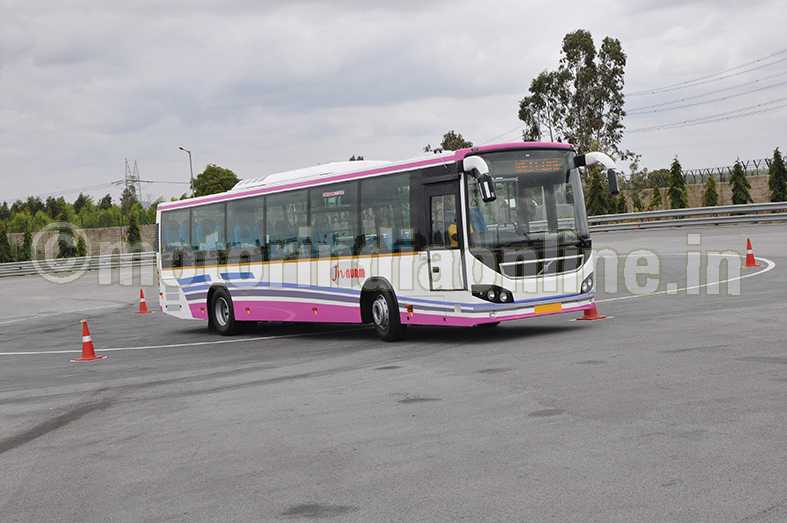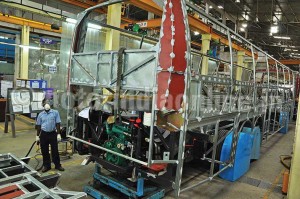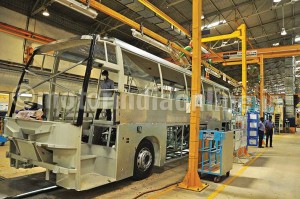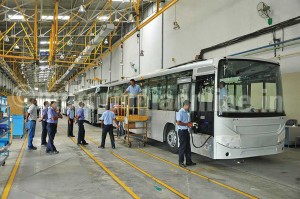Success to continue following multiple milestones
A bus is no longer about moving people from point to point. It now has an equally important job to move people away from their personal vehicles. City buses should motivate passengers to shift from cars to public transportation. This also means that the bus must compete with the personal option to be safer, more comfortable and convenient, which are the key to encourage people to switch over to bus transportation.
Volvo buses are synonymous with luxury. Since commencement of its operations in India in 2001, the Swedish vehicle manufacturer has been revolutionising bus transportation by introducing new concepts in India such as true bus chassis, low-floor vehicles, multi-axle coaches, etc.
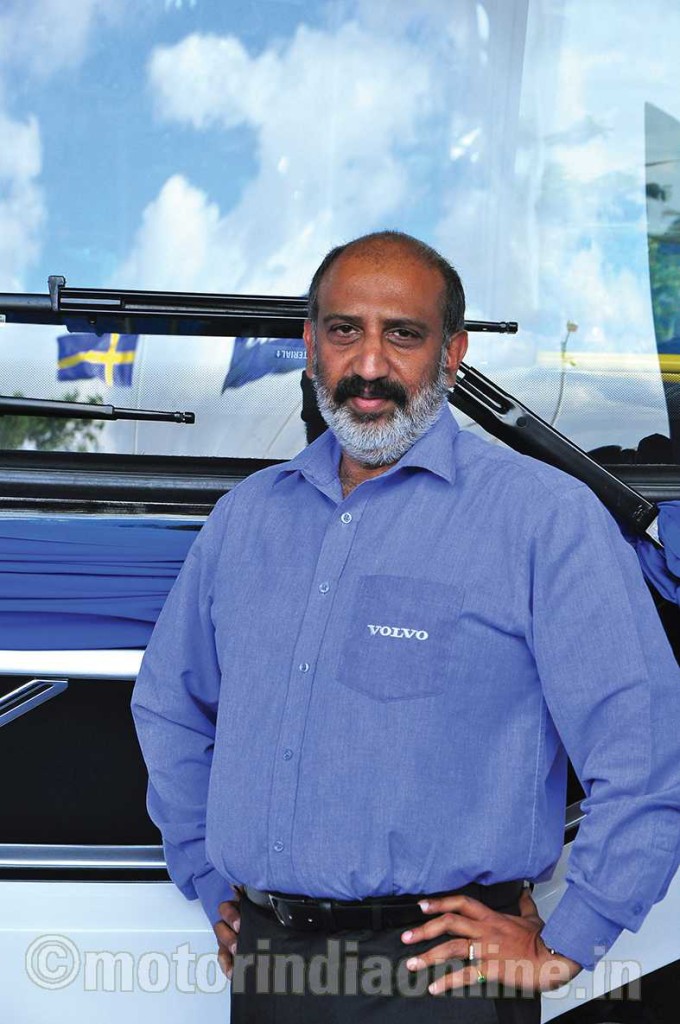
Addressing a press conference in Bangalore recently, Mr. V.R.V. Sriprasad, Managing Director, Volvo Buses India, who recently completed 100 days of his tenure in the company, said: “We are here today to celebrate a few milestones that we have crossed. Volvo has now reached 15 cities that operate the company’s buses. We are confident that this base will expand further. We have more than 5,000 buses on Indian roads and have trained more than 25,000 drivers. Volvo, with its coaches, connects more than 75 large and small cities and towns in the country where the travel experience has undergone a phenomenal change.”
On cost reduction and localisation of parts, he said the indigenisation percentage is still only 35-40 per cent, with engines for buses still being imported from Sweden. As a cost reduction initiative, the group is also planning to source engines from its Pithampur plant in the near future.
Referring to the Prime Minister, Mr. Narendra Modi’s vision of setting up 100 smart cities in India, Mr. Sriprasad said that his company, with wide opportunities for its fuel-efficient and hybrid buses which run on electricity and diesel, would play a leading role in this area. With a market share of 82 per cent in premium coaches, Volvo claims a 50 per cent share in low-floor high performing city buses.
The Volvo technology defines the way people experience comfort and safety in a city bus. Besides features like electronic suspension, kneeling mechanism, and facilities for quick entry and exit of people with disabilities, the typical Volvo city bus offers an assurance of utmost safety.
He further pointed out that Volvo was the first player to begin delivery of city buses under the Urban Bus Specifications II. The New Volvo 8400 City bus designed for these requirements was developed jointly with the company’s global team. Now more people switch over to public transport. This means a reduced number of vehicles plying on roads and reduced emissions, besides less traffic congestion and safety risks. “A developed country is not a place where poor people buy cars but where rich people wait for public transport”.
A large number of cities already operating Volvo city buses have chosen to augment their fleets, while new cities are adopting these buses for the first time. In 2014 we see more and more smaller cities – such as Solapur and Puducherry adopting the Volvo Concept.
As a result, the Volvo City Bus experience is spreading akin to the way Volvo coaches connect cities across all key highways in India – now, almost 72 cities.
Volvo City buses have shown a clear trend in weaning citizens away from their personal vehicles. If not for Volvo, these citizens would not take the bus. In Bangalore, a survey indicated that majority of passengers have the option of personal travel.
Focus on Drivers
Stressing the role of trained drivers, Mr. Sriprasad observed that the best drivers can achieve over 20 per cent better fuel efficiency than the typical drivers. “We had to upgrade the quality of drivers and their attitude to driving skills. When a bus is sold we insist that it will not be delivered unless the customer brings along with him two to three drivers for undergoing training. Drivers have been treated very badly in our country. We, on our part, have brought in a lot of respect and dignity for the drivers.”
The Volvo Driver Training Centre set up within the plant facility in Bangalore focuses on helping good drivers get their due regard and respect. About 30 per cent of the drivers trained at this centre are also those who have chosen to get training on their own, so as to further their career prospects in commercial driving. These drivers pay a token fee for the training programs that include both theoretical and practical classes, besides basic skills.
Volvo production systems
While taking the media team around the factory, Mr. Sriprasad said: “With the dedicated 800-strong workforce, the Bangalore bus plant covering an area of 25,000 sq. m. It has been built to Volvo’s global quality standards adopting the best practices from similar plants across the world to make it a complete bus manufacturing facility. It offers a wide range of buses with superior body components, anti-corrosion treatment, refined interiors and dust-free paint finishing. The products turned out are supported by the complete bus package from Volvo Buses, which includes driver training, service and parts support, Volvo service agreements, Volvo Advisory, Volvo Telematics and advanced diagnostic features.”
He further said: “The Volvo Production System (VPS) has been built to global standards. The buses which are manufactured here range from seven to eleven litre multi-axle buses which are exported to South Africa. At every stage, we meet global standard norms specified by the Volvo Standard Corporation.”
Under Mr. Sriprasad who has rich experience in commercial vehicle industry, Volvo is expected to attain greater heights and cross more milestones.
